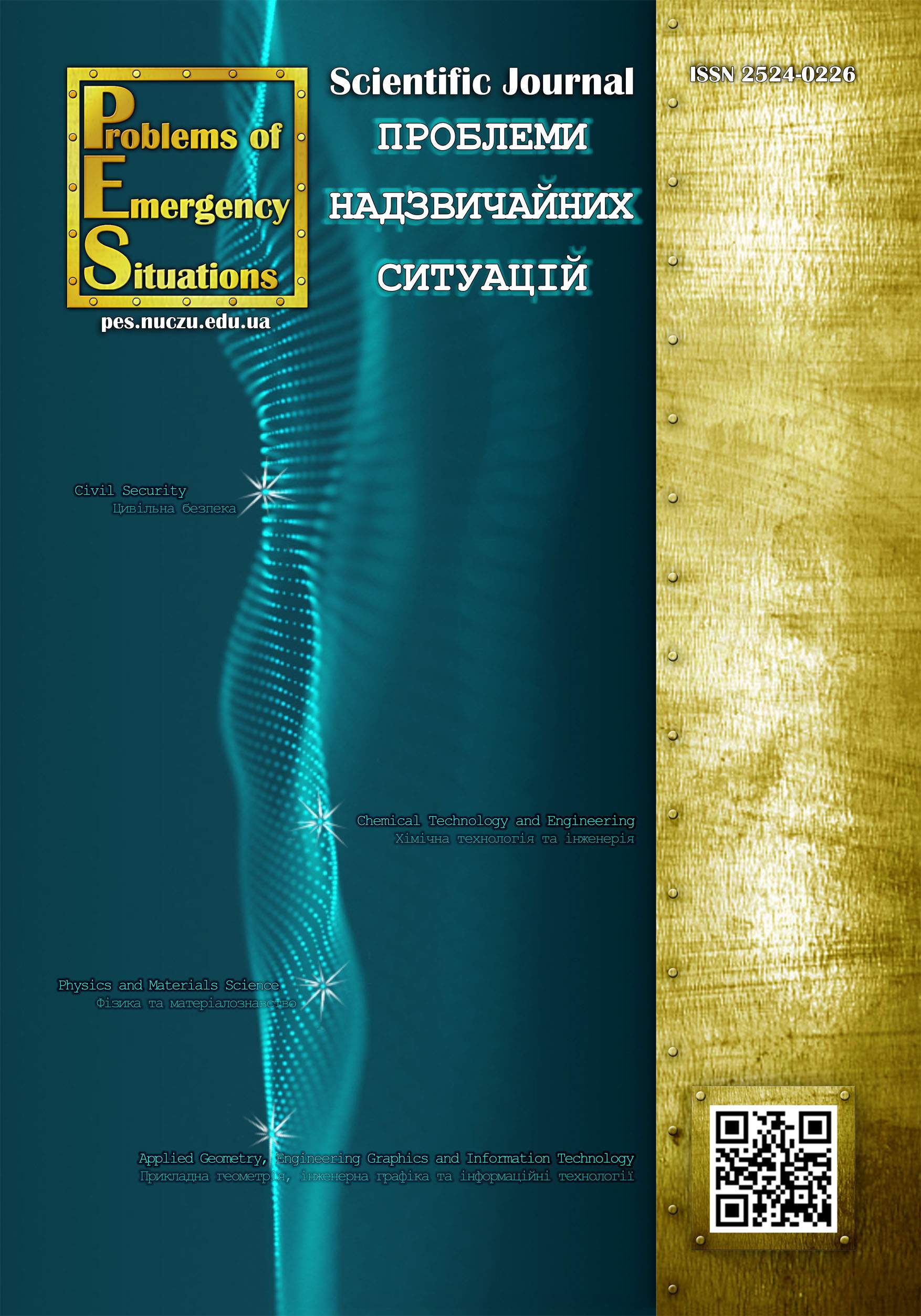Justification of the need to create modern robotic and technical complexes for humanitarian demining
Nevlyudov Ihor
Kharkov National University of Radio Electronics
http://orcid.org/0000-0002-9837-2309
Yanushkevich Dmitry
Kharkov National University of Radio Electronics
http://orcid.org/0000-0003-3684-518X
Tolkunov Ihor
National University of Civil Defenсe of Ukraine
http://orcid.org/0000-0001-5129-3120
Popov Ivan
National University of Civil Defenсe of Ukraine
http://orcid.org/0000-0003-4705-4404
Ivanets Hryhorii
National University of Civil Defenсe of Ukraine
http://orcid.org/0000-0002-4906-5265
DOI: https://doi.org/10.52363/2524-0226-2023-38-2
Keywords: humanitarian demining, robotic complex, non-technical and technical inspection of territories
Аnnotation
A study of military, special or dual purpose robotic complexes used in the humanitarian demining system was conducted. It was determined that the system of humanitarian demining involves the following tasks: inspection of objects and terrain contaminated by explosive objects; their search, remote identification, neutralization and destruction; mapping and marking of dangerous areas, etc. In this regard, it has been proven that for humanitarian demining, it will be appropriate to use robotic and technical complexes of special purpose, which should be equipped with manipulators and detectors (sensors, gauges), means of decision-making at all stages of the work. A mathematical model and a control algorithm have been developed for the clearance of explosive objects from the territory of hostilities using robotic complexes that implement the principle of an integrated approach to solving the problem of clearing the territories of Ukraine. The proposed mathematical model is a combination of interconnected models: estimation of the terms of solving the problem of clearing the territory of combat operations from explosive objects, the total number of personnel and technical equipment of the units to perform the assigned tasks. According to the results of the research, recommendations were given for the use of modern robotic complexes in humanitarian demining and it was established that to increase the efficiency of detecting explosive objects, it is advisable to use various search methods in one robotic complex. One of the most promising methods is the use of a combination of electromagnetic, optical and mechanical methods, as well as the development of complexes capable of searching for, neutralizing and destroying explosive objects not only on the surface of the soil, but also at a certain depth.
References
- Tarhan, M. (2021). Invisible Death: Antipersonnel mines continue to claim thousands of lives.Anadolu agency. Available at: https://bit.ly/352MG61
- Manjula Udayanga Hemapala. (2017). Robots for Humanitarian Demining. Submitted: 25th October, 2016; Reviewed: 29th June, 2017; Published: 20th December, 2017. doi: 10.5772/intechopen.70246
- Florez, J., Parra, C. (2016). Review of sensors used in robotics for humanitarian demining application. Colombian Conference on Robotics and Automation (CCRA); 29-30 September, 2016. Bogota: IEEE. 1-6.
- Koppetch, K. (2019). Mechanical Demining Equipment Catalogue [Internet]. Geneva: GICHD. Available at: http://www.eudem.vub.ac.be/publications/publication.asp?pub_id=14
- Trevelyan, J., Hamel, W. R., Kang, S. C. (2016). Robotics in hazardous applications. Springer Handbook of Robotics. Springer International Publishing. London, 1521 1548.
- Cepolinaa, E., Bruschini, C., De Bruyn, K. (2005). Providing demining technology end-users need. In: Proceeding of the IARP International workshop on Robotics and Mechanical Assistance in Humanitarian Demining (HUDEM2005). Tokyo Denki University, 21–23 June, 2005. Tokyo, Japan, 9–14. Available at: https://www.gichd.org/fileadmin/pdf/LIMA/HUDEM2005.pdf
- Strutynsky, V. B., Yurchyshyn, O. Ya., Kravets, O. M. (2021). Development of the basic principles of designing manipulators of mobile robots of special purpose adapted for work with dangerous objects. Materials of the XXII International STC «Progressive Engineering, Technology and Engineering Education». Kyiv: KPI named after Igor Sikorsky, 129–131. Available at: http://conf.mmi.kpi.ua/proc/article/ view/239152
- Furuta, K., Ishikawa, J. (2009). Anti-personnel Landmine Detection for Humanitarian Demining. London: Springer. Available at: https://commons.lib.jmu.edu/cgi/viewcontent.cgi?article=1483&context=cisr-journal
- Kasban, H., Zahran, O., Sayed, M. Elaraby, M. El-Kordy, F. E. Abd El-Samie. (2010). A Comparative Study of Landmine Detection Techniques. An International Journal Sensing and Imaging, 11, 89–112. Available at: https://www.researchgate.net/publication/225752842_A_Comparative_Study_of_Landmine_Detection_Techniques
- Yanushkevich, D. A., Ivanov, L. S. (2021). Robotic special purpose vehicles: analysis of international regulations. Manufacturing & Mechatronic Systems 2021. Proceedings of the V International Conference. Kharkov, KhNURE, 176–179. Available at: https://nure.ua/wp-content/uploads/2021/M&MS-2021/zbirnik-_m-ms_2021.pdf
- Yanushkevich, D. A., Ivanov, L. S. (2021). Current trends in the use of robotic systems for humanitarian demining. Proceedings of the III Forum «Automation, Electronics and Robotics. Development Strategies and Innovative Technologies» AERT-2021. Available at: https://mts.nure.ua/conferences-ua/forum/aert-2021
- Freese, M., Matsuzawa, T., Oishi, Y., Debenest, P., Takita, K., Fukushima, E. F., Hirose, S. (2007). Robotics-assisted demining with gryphon. Advanced Robotics. 01 January, 2007. Tokyo, Japan, 21(15), 1763–1786. Available at: https://ru.booksc.eu/book/36010951/4c0f48
- TALON Small Mobile Robot Available at: https://www.globalsecurity.org/military/systems/ground/talon.htm
- Foster-Miller unveils TALON robot that detects chemicals, gases, radiation and heat. Available at: https://bit.ly/3FrZ1Rm
- Dragon Runner 6×6. Available at: https://bit.ly/3xsWxQ2
- Warrior 710. Available at: http://www.army-guide.com/rus/ product4994.html
- Ground combat robotics: leaders and Ukraine. Available at: https://lb.ua /news/2021/11/17/498795_nazemni_boyovi_roboti_lideri.html














